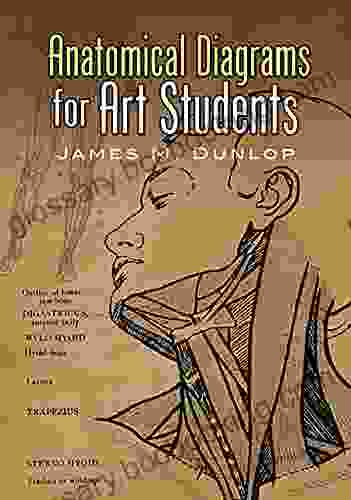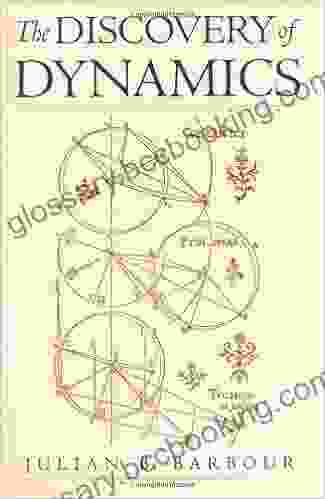Study from Machian Point of View of the Discovery and the Structure Of

4.2 out of 5
| Language | : | English |
| File size | : | 9887 KB |
| Text-to-Speech | : | Enabled |
| Screen Reader | : | Supported |
| Word Wise | : | Enabled |
| Print length | : | 776 pages |
| Lending | : | Enabled |
Ernst Mach was an Austrian physicist and philosopher who made significant contributions to the fields of science, philosophy of science, and psychology. His work has had a profound influence on the development of logical positivism and the Vienna Circle, as well as on the fields of phenomenology and empiricism.
Mach's philosophy of science is based on the idea that all knowledge is derived from experience. He argued that there is no such thing as pure reason or a priori knowledge. All knowledge, he believed, is based on our sensations and perceptions of the world around us.
Mach's philosophy of science has been influential in the development of logical positivism, a school of thought that emphasizes the importance of logical analysis and the rejection of metaphysics. Logical positivists argue that all meaningful statements are either analytic (true by definition) or synthetic (based on experience). Metaphysical statements, they argue, are meaningless because they cannot be verified or falsified.
The Vienna Circle was a group of philosophers and scientists who met in Vienna in the early 20th century to discuss the philosophy of science. The Vienna Circle was heavily influenced by Mach's philosophy of science, and its members included some of the most important figures in the development of logical positivism, such as Moritz Schlick, Rudolf Carnap, and Otto Neurath.
Mach's philosophy of science has also been influential in the development of phenomenology, a school of thought that emphasizes the importance of studying consciousness and subjective experience. Phenomenologists argue that the only way to truly understand the world is to study it from the perspective of the individual.
Mach's philosophy of science is a complex and challenging one, but it is also a fascinating and important one. His work has had a profound influence on the development of philosophy of science, and it continues to be studied and debated today.
The Discovery of Scientific Knowledge
Mach argued that all scientific knowledge is discovered through experience. He rejected the idea that there is such a thing as pure reason or a priori knowledge. All knowledge, he believed, is based on our sensations and perceptions of the world around us.
Mach's philosophy of science is based on the following principles:
- All knowledge is derived from experience.
- There is no such thing as pure reason or a priori knowledge.
- All scientific knowledge is discovered through a process of induction.
- The laws of science are not absolute truths, but rather are generalizations from experience.
Mach's philosophy of science has been influential in the development of logical positivism, a school of thought that emphasizes the importance of logical analysis and the rejection of metaphysics. Logical positivists argue that all meaningful statements are either analytic (true by definition) or synthetic (based on experience). Metaphysical statements, they argue, are meaningless because they cannot be verified or falsified.
The Structure of Scientific Knowledge
Mach argued that scientific knowledge is structured in a hierarchical fashion. He believed that the most basic level of scientific knowledge is composed of simple sensations and perceptions. These sensations and perceptions are then organized into more complex concepts and theories.
Mach's hierarchy of scientific knowledge can be represented as follows:
- Sensations and perceptions
- Concepts
- Theories
Mach believed that the goal of science is to develop theories that can explain the world around us. However, he also believed that theories are always provisional and subject to revision. As new evidence is discovered, theories must be modified or replaced to accommodate the new data.
The Influence of Mach's Philosophy of Science
Mach's philosophy of science has had a profound influence on the development of philosophy of science, and it continues to be studied and debated today. His work has been influential in the development of logical positivism, phenomenology, and empiricism.
Logical positivism is a school of thought that emphasizes the importance of logical analysis and the rejection of metaphysics
4.2 out of 5
| Language | : | English |
| File size | : | 9887 KB |
| Text-to-Speech | : | Enabled |
| Screen Reader | : | Supported |
| Word Wise | : | Enabled |
| Print length | : | 776 pages |
| Lending | : | Enabled |
Do you want to contribute by writing guest posts on this blog?
Please contact us and send us a resume of previous articles that you have written.
 Book
Book Novel
Novel Page
Page Chapter
Chapter Text
Text Story
Story Genre
Genre Reader
Reader Library
Library Paperback
Paperback E-book
E-book Magazine
Magazine Newspaper
Newspaper Paragraph
Paragraph Sentence
Sentence Bookmark
Bookmark Shelf
Shelf Glossary
Glossary Bibliography
Bibliography Foreword
Foreword Preface
Preface Synopsis
Synopsis Annotation
Annotation Footnote
Footnote Manuscript
Manuscript Scroll
Scroll Codex
Codex Tome
Tome Bestseller
Bestseller Classics
Classics Library card
Library card Narrative
Narrative Biography
Biography Autobiography
Autobiography Memoir
Memoir Reference
Reference Encyclopedia
Encyclopedia James D Watson
James D Watson Joel Mokyr
Joel Mokyr Jacques D Amboise
Jacques D Amboise Neil Parsons
Neil Parsons Winky Lewis
Winky Lewis James Ford Rhodes
James Ford Rhodes Jamal Mazrui
Jamal Mazrui Susan Garcia
Susan Garcia Robert A Lutz
Robert A Lutz Jake Bible
Jake Bible Jason Warren
Jason Warren James Randi
James Randi John Hargrave
John Hargrave James O Prochaska
James O Prochaska Vili Lehdonvirta
Vili Lehdonvirta Jacquie Fisher
Jacquie Fisher Laurinda Reddig
Laurinda Reddig Ruth Millington
Ruth Millington Susan Elizabeth Jones
Susan Elizabeth Jones Judy Folger
Judy Folger
Light bulbAdvertise smarter! Our strategic ad space ensures maximum exposure. Reserve your spot today!

 D'Angelo CarterAnatomical Diagrams for Art Students: The Ultimate Guide to Human Anatomy for...
D'Angelo CarterAnatomical Diagrams for Art Students: The Ultimate Guide to Human Anatomy for... Fred FosterFollow ·14.3k
Fred FosterFollow ·14.3k Aubrey BlairFollow ·15.5k
Aubrey BlairFollow ·15.5k Fletcher MitchellFollow ·17.4k
Fletcher MitchellFollow ·17.4k Dominic SimmonsFollow ·3.7k
Dominic SimmonsFollow ·3.7k Edwin BlairFollow ·4.4k
Edwin BlairFollow ·4.4k Hugo CoxFollow ·13k
Hugo CoxFollow ·13k Vic ParkerFollow ·4k
Vic ParkerFollow ·4k Thomas MannFollow ·17.6k
Thomas MannFollow ·17.6k

 Douglas Adams
Douglas AdamsGingerbread Friends by Jan Brett
A Magical Tale for the Holidays Jan Brett's...

 Joseph Foster
Joseph FosterHappy Birthday Moo Moo Family: A Delightful Tale for Kids...
Celebrate the Bonds of Family with...

 Demetrius Carter
Demetrius CarterUncover the Enchanting Tapestry of New Delhi: A Visual...
New Delhi, India's vibrant capital, is a...

 W.B. Yeats
W.B. YeatsUnveiling the Power of Lean UX: A Comprehensive Review of...
In the rapidly evolving world...
4.2 out of 5
| Language | : | English |
| File size | : | 9887 KB |
| Text-to-Speech | : | Enabled |
| Screen Reader | : | Supported |
| Word Wise | : | Enabled |
| Print length | : | 776 pages |
| Lending | : | Enabled |














